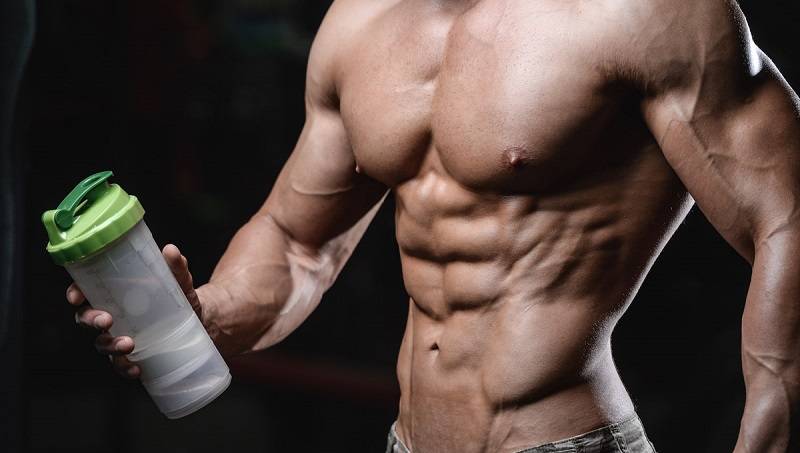. Resshmi Rajkumar
We all know “Protein” is one of the most essential macronutrients for growth and repair. Protein serves a wide range of functions in the development of structural systems (skeletal muscle, bone, and organs), Immune functions (white blood cells and antibodies), hormones and enzymes, etc.
Around 250,000 to 1 million different types of protein molecules are present in the human body. Protein is broken down into amino acids, during digestion, which in turn are absorbed and re-assembled into new proteins necessary for healthy functioning.
While considering protein requirements for muscle hypertrophy, it certainly depends on several factors like age, gut health, metabolic issues, type of training, etc. Muscle mass in adults is fairly stable with muscle tissue constantly being built up and broken down.
Majorly training stimulates muscle protein synthesis i.e. build-up of muscle. But only when accompanied by the right nutrition can it sustain.
Protein Intake & Chrono nutrition – Does Timing Matter?
“Chrono nutrition” – A concept of how the timing and nutrient intake affect the biological functions also familiarly known as “Circadian Rhythm”. When it comes to muscle hypertrophy, understanding ‘’when you eat’’ profoundly is as important as how you train and what you eat. Exercise has been shown to put stress on the body and can release hormones like adrenaline and cortisol. The right recovery nutrition is required to aid in the breakdown and repair of muscle tissue. The latest research suggests that it is important to have proteins in your first meal of the day to optimize the effectiveness of muscle building.
Rule 1: “Eat Real Food”
I swear by these three words. Your diet should maximally consist of home-cooked food with quality proteins. Choose foods that have high biological value proteins that contain all of the essential amino acids that are called complete proteins present in fish, chicken, whole eggs, milk, etc. However, dietary proteins which are also present in vegetables, nuts, and legumes are often referred to as incomplete proteins. When you consume protein along with meals it contributes to satiety meaning keeping you full for long.
Rule 2: “Anabolic Window” – Yay ? or Nay ??
It’s essential to plan your intake carefully no matter what your goals may be. If you’ve ever found yourself taking baby steps at lifting weights the first fleeting advice you would hear is consuming protein within 30 – 60 minutes after workout.
Whilst this can hold true, the body needs to replenish and recover micro-tears of muscles. Recent studies have shown “anabolic window” is more pliable than once believed by researchers. In fact, you may be able to widen your eating window from minutes to hours depending on when you had your last meal and still maximize your gains.
Rule 3: All Meals Possible!
Now that you’ve understood that you can widen your anabolic window it is extremely important to distribute protein at every meal. Say, if you’re training throughout the week including a rest day in between then ensure you hit 15-20 gm of protein in each meal. Below is a sample meal plan for your reference.
Meal and Sample Menu
Breakfast: Whole eggs with steamed vegetables
Lunch: Rice with Thick Dhal with quality fats, vegetables and chicken breast.
Snack/Post Workout: Handful of nuts and Greek yoghurt.
Dinner: Cheese cube, sweet potatoes and steamed vegetables.
Also Read: Heart attack & stroke risk raising in women than men because of work pressure
Rule 4: Gut Health / Tolerability:
When it comes to muscle building, being misguided and overlooking some concerns may have an adverse effect on health. Especially factors like increased stress hormones, metabolic issues that result in low stomach acid, bile insufficiency, or other digestive problems you might have trouble digesting large amounts of protein. Ultimately, these are situations where you need to get proper guidance.
Rule 5: It’s Not Just Protein!
● While your goal depends on muscle building make sure to have protein accompanied by complex carbs, fiber, quality fats, and essential micronutrients like vitamins and minerals.
● Sleeping adequately ensures recovery and keeps your stress at bay.
● Muscles consist of 50% water so hydration is a must. Drink at least 3 to 4 liters of water along with electrolytes (sodium, potassium, magnesium, etc.) to replenish the lost salts through sweat.
Remember you cannot outrun a bad diet with a workout!!!
Also Read: This blood group is at a higher risk of heart attack, the study revealed


Comments are closed.